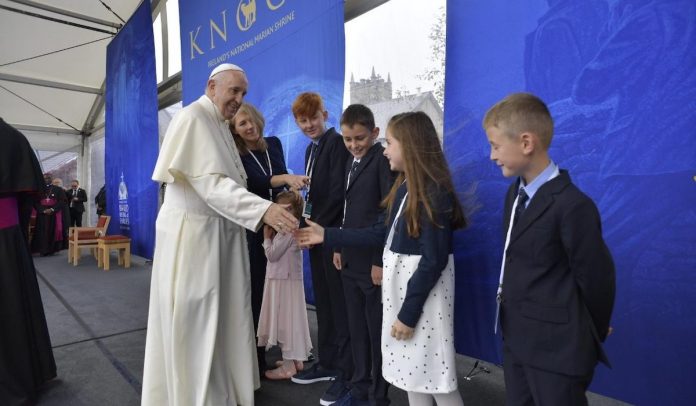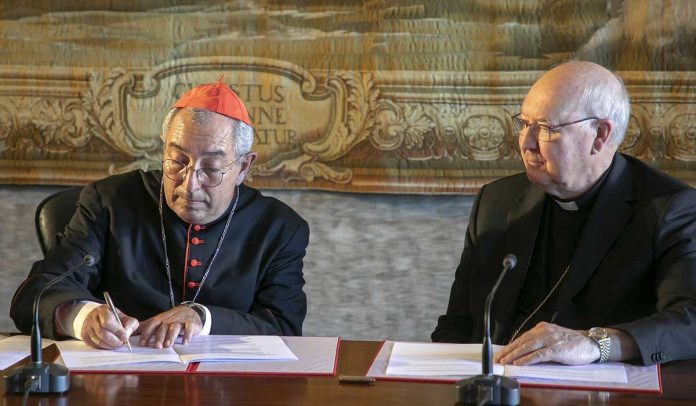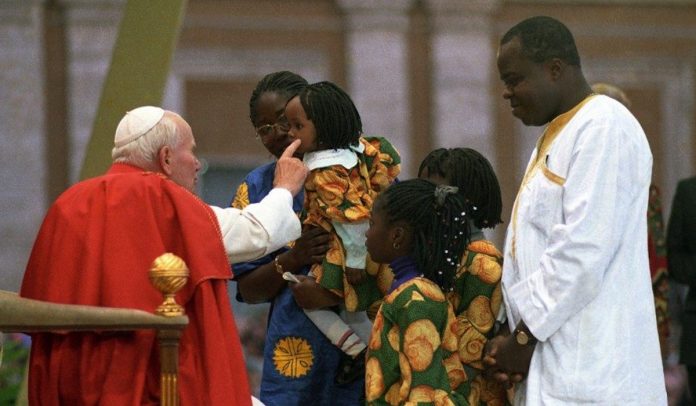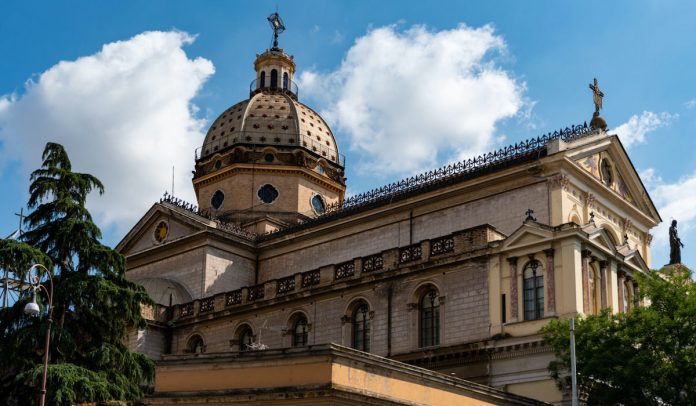As stated by the Vatican Press Office’s Bulletin published April 10th 2020, “Due to the current health situation and its consequences for the movement and gathering of young people and families, the Holy Father, along with the Dicastery for the Laity, Family and Life, has decided to postpone by one year the next World Meeting of Families, scheduled to take place in June 2021”. Similarly World Youth Day has also been postponed.
The families will meet in Rome in June of 2022, rather than 2021. Cardinal Kevin Joseph Farrell, Prefect of the Dicastery for Laity, Family and Life, goes into detail to explain the reasons for the postponement in a Q&A interview with Vatican News:
A. – The situation of the world today has changed radically. The World Meeting of Families had been scheduled for June of next year, and World Youth Day for 2022. However these two events are international events, and require ample time for preparation. The organizational, logistical, and economic aspects of planning such events and the fact that we don’t know what the situation of the world will be as this pandemia comes to an end, were important factors in the decision to postpone the events. Other than taking into account the current economic situation of families, it wouldn’t be prudent even from a health standpoint to gather thousands of people from various parts of the world together here in Rome next year. Therefore the Holy Father and we here at the Dicastery, after consulting with the Vicariate of Rome and with our contacts in Portugal, have decided that it would be best to wait a year before we start the preparations for these international events. The gathering for families will take place in Rome in 2022, and that for youth will take place in Lisbon in 2023. But we are worried for what the future might hold. We do wish that things might start to be normal again so we can go back to our daily routines, however this is not realistic. Many people are of the opinion that we will need at least two or three years before we can start to live normally again.
Q. – International gatherings of this kind can easily gather thousands of people from different countries. But we don’t know yet what the future might hold: how do you plan to take action?
A. – Most dioceses throughout the world organize events within their own nations and they hold meetings for families and for youth. We continue in our daily work to sustain bishops as they promote family life within their own diocese and as they work with young people. We do hope to be able to continue to have international gatherings, but for now it’s not realistic to think that people might travel again for at least the next two years. In any case, we don’t just organize international events, that’s not actually our main line of work. We still have our day to day work which consists in promoting family living and christian living for young people.
Q. – The lockdown in many countries of the world has given as an opportunity to think about what is essential and it has put family living at the center of our lives. What kind of teaching can we gather from this kind of situation?
A. – The Pope in his daily Mass has been giving an important message to everyone around the world: family is at the center of our lives, and has a lot to teach us. Having to live each day during this time so close together in family can teach us how to live in an altruistic manner. The situation that we have been through could be considered an opportunity that the Lord has given us in order to learn how to leave behind egotistic lifestyles, and to learn to see in each person a brother or a sister. One thing we learned is that family is a place where we can learn to know each other, because there are so many things in the daily life of each one of us that at times we lack to see the needs of those who are around us, because we are taken in by ourselves. So it has become an opportunity to be less egotistic and more caring.















